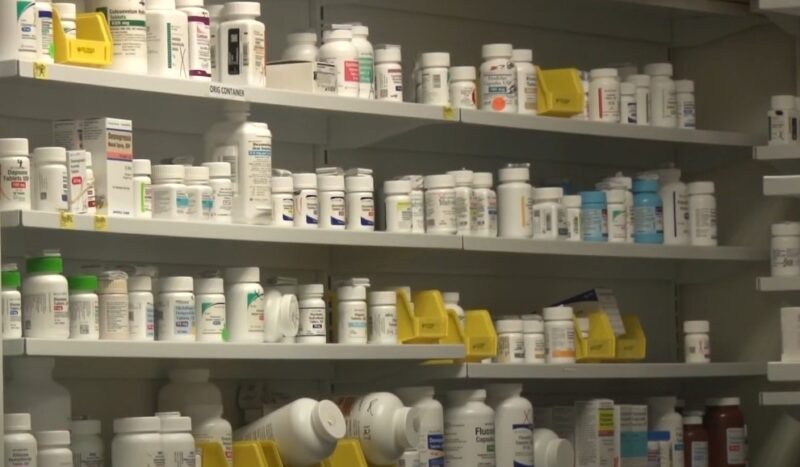Antibiotics have been hailed as one of the most significant medical advancements of the 20th century, revolutionizing the treatment of bacterial infections and saving countless lives. However, the accessibility of these powerful medications varies globally, leading many to wonder: Can you get antibiotics over the counter?
Antibiotics are medications designed to kill or inhibit the growth of bacteria, effectively treating bacterial infections. According to the World Health Organization (WHO), antibiotics are essential for combating diseases like pneumonia, tuberculosis, and sepsis. They have also played a crucial role in enabling complex surgeries and chemotherapy by preventing and treating infections.
Preventing Antibiotic Resistance

One of the primary reasons antibiotics are not available over the counter in many countries is to prevent antibiotic resistance. As noted by the Centers for Disease Control and Prevention (CDC), misuse and overuse of antibiotics are leading contributors to the rise of antibiotic-resistant bacteria. When antibiotics are used unnecessarily or incorrectly, bacteria can adapt and become resistant, rendering standard treatments ineffective.
Ensuring Proper Diagnosis and Treatment
Antibiotics are only effective against bacterial infections such as ear infection, not viral ones like the common cold or flu. According to the Mayo Clinic, taking antibiotics for viral infections is ineffective and can contribute to antibiotic resistance. A healthcare professional can accurately diagnose the type of infection and determine whether antibiotics are necessary.
Monitoring Side Effects and Interactions
Antibiotics can have side effects and may interact with other medications. As per the National Health Service (NHS) in the UK, common side effects include nausea, diarrhea, and allergic reactions. Prescribing antibiotics through a healthcare provider ensures patients are monitored for adverse effects and potential drug interactions.
Global Variations in Accessibility

Countries with Over-the-Counter Availability
In some countries, antibiotics can be purchased without a prescription.
For instance, according to a study published in The NCBI, countries like Mexico, parts of Asia, and Africa have looser regulations, allowing over-the-counter sales of antibiotics. This accessibility is often due to weaker regulatory frameworks and the necessity to provide treatment in areas with limited healthcare access.
Risks Associated with Unregulated Access
As noted by the WHO, over-the-counter availability in these regions has led to higher rates of antibiotic resistance. Self-medication often results in incorrect dosing, inappropriate antibiotic selection, and failure to complete the prescribed course, all of which contribute to resistance.
The Dangers of Over-the-Counter Antibiotics
Antibiotic Resistance: A Global Threat
Antibiotic resistance is a significant global health concern. According to the CDC, at least 2.8 million people in the U.S. get antibiotic-resistant infections annually, with more than 35,000 deaths. Globally, the WHO estimates that antibiotic resistance could cause 10 million deaths per year by 2050 if current trends continue.
Misdiagnosis and Inappropriate Use
Without medical guidance, individuals may misdiagnose their conditions and use antibiotics inappropriately. As per a study, self-medication often leads to the use of antibiotics for viral infections, where they are ineffective. This misuse not only fails to treat the illness but also fosters resistance.
Adverse Health Effects
Improper use of antibiotics can lead to adverse health effects. According to the FDA, side effects range from mild allergic reactions to severe, life-threatening conditions like anaphylaxis. Overuse can also disrupt the natural balance of gut bacteria, leading to issues like Clostridioides difficile infections.
The Importance of Responsible Antibiotic Use

Completing the Prescribed Course
It’s crucial to complete the full course of antibiotics as prescribed. As noted by the NHS, stopping treatment early, even if symptoms improve, can allow bacteria to survive and develop resistance.
Avoiding Sharing Medications
Sharing antibiotics with others is dangerous. American College of Physicians, medications prescribed to one person may not be appropriate for another, leading to ineffective treatment and potential harm.
Consulting Healthcare Professionals
Always seek medical advice before taking antibiotics. As per the CDC, healthcare providers can determine whether antibiotics are necessary and which type is most effective13.
Alternatives to Over-the-Counter Antibiotics

Over-the-Counter Medications for Symptom Relief
For minor ailments, over-the-counter medications can alleviate symptoms. According to Harvard Health Publishing, analgesics, decongestants, and antihistamines can manage symptoms of viral infections until they resolve naturally.
Preventative Measures
Preventing infections reduces the need for antibiotics. As noted by the WHO, practices like vaccination, hand hygiene, and safe food preparation are effective in preventing bacterial infections.
Over-the-Counter Antibiotic Options
Various topical antibiotics can be acquired without a prescription to manage minor skin issues like scrapes, cuts, and small burns. Products such as ointments, creams, sprays, and powders are available to thwart infection in these cases. Popular over-the-counter choices include Bacitracin (found in Neosporin), Polymyxin (available in Polysporin), Neomycin (offered in Neosporin Plus Pain Relief), and Pramoxine. Additionally, benzoyl peroxide, commonly seen in products like Proactiv, is used for acne treatment.
Despite their availability, it is advised to seek professional medical guidance before using topical antibiotics. This precaution helps in avoiding any unnecessary irritation or complications that may arise from improper use.
The Role of Healthcare Systems and Policies
View this post on Instagram
Strengthening Regulations
To combat antibiotic resistance, many countries are tightening regulations. According to the European Medicines Agency (EMA), stricter prescription policies have been effective in reducing antibiotic misuse in Europe.
Public Education Campaigns
Educating the public on the risks of antibiotic misuse is vital. Awareness campaigns have successfully reduced unnecessary antibiotic use.
Conclusion
While obtaining antibiotics over the counter might seem convenient, the potential risks far outweigh the benefits.
By adhering to prescription guidelines, completing treatment courses, and seeking medical advice, individuals can contribute to the global effort to combat antibiotic resistance.
Remember: Antibiotics are powerful tools that, when used correctly, save lives. Misuse them, and we risk returning to a time when simple infections are deadly. Always consult a healthcare professional before taking antibiotics.
References
- World Health Organization. (2020). Antibiotic resistance.
- Centers for Disease Control and Prevention. (2021). Antibiotic Resistance Threats in the United States.
- Mayo Clinic. (2019). Antibiotics: Are you misusing them?
- National Health Service. (2018). Antibiotics.
- World Health Organization. (2015). Worldwide country situation analysis: Response to antimicrobial resistance.
- Centers for Disease Control and Prevention. (2019). Antibiotic Resistance Threats in the United States.
- O’Neill, J. (2016). Tackling drug-resistant infections globally: final report and recommendations.
- U.S. Food and Drug Administration. (2018). Antibiotics and Antibiotic Resistance.
- National Health Service. (2019). Why it’s important to take your antibiotics properly.
- American College of Physicians. (2017). Antibiotic Stewardship.
- Centers for Disease Control and Prevention. (2020). Be Antibiotics Aware: Smart Use, Best Care.
- Harvard Health Publishing. (2018). Over-the-counter cold remedies.
- European Medicines Agency. (2018). Antimicrobial resistance.
- The Pew Charitable Trusts. (2016). A Scientific Roadmap for Antibiotic Discovery.

